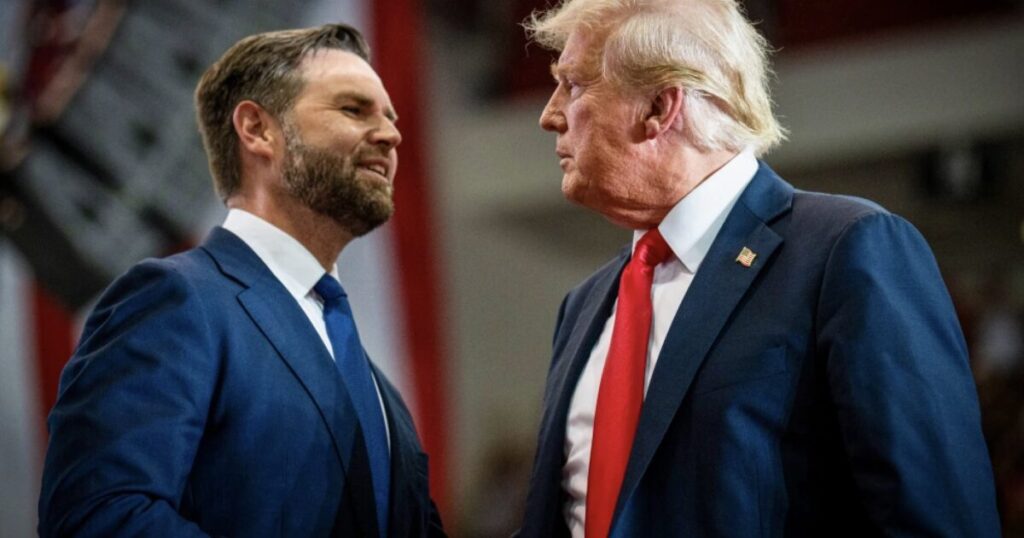An Ohio judicial panel recently dismissed a petition from the Haitian Bridge Alliance (HBA), a far-left nonprofit group, to issue arrest warrants for former President Donald Trump and Senator JD Vance. The HBA accused the two Republicans of spreading harmful false claims about Haitian migrants in Springfield, Ohio, specifically alleging that their remarks incited panic and disruption within the community. Trump and Vance’s comments criticized the ongoing border crisis, which they attributed to Vice President Kamala Harris’s policies, leading to a perceived decline in safety and community welfare in Springfield due to illegal immigration.
Residents of Springfield expressed their growing concerns over rising crime rates and resource depletion linked to the influx of migrants. Accounts of increasingly chaotic situations have added fuel to the fire of discontent, with alarming claims from locals—such as witnessing a Haitian migrant preparing a cat for food—highlighting the distress experienced in the area. These anxieties, amplified by the administration’s alleged inaction, positioned Trump and Vance’s warnings as reflections of the community’s frustration, yet HBA contended that the leaders’ rhetoric exaggerated the crisis and was intended to incite panic rather than inform.
HBA’s legal filing included a range of charges against Trump and Vance, asserting that their statements constituted various offenses such as disrupting public services, making false alarms, telecommunications harassment, and aggravated menacing. They claimed these actions had factual and legal ramifications, suggesting that the politicians knowingly spread falsehoods despite opposition from state and local officials. Additionally, HBA argued that the First Amendment does not provide protections for statements that lead to chaos and public fear, thereby attempting to frame the issue as a matter of legal accountability rather than political discourse.
Despite these severe accusations, the Clark County Municipal Court swiftly rejected HBA’s push for arrest warrants, determining there was “no probable cause” for such legal actions against Trump and Vance. The court’s ruling emphasized the critical importance of the protections granted to political speech under the First Amendment, particularly in the volatile context of an upcoming presidential election. The court refrained from making any assumptions about the validity of HBA’s claims, recognizing the contentious nature of immigration issues that are likely to influence voter sentiments in the weeks ahead.
While the court dismissed the request for arrest warrants, they directed the case to county prosecutors for further examination. Remarkably, the judges highlighted the need for careful investigation into the claims before reaching any conclusions about potential prosecution. This approach underscores the judiciary’s role in maintaining a balanced perspective between upholding free speech and addressing public safety concerns in a politically charged environment.
Ultimately, this incident reflects a broader national debate about immigration, free speech, and the responsibilities of public figures. With political tensions running high and the election approaching, the complexities surrounding these issues highlight the challenges of navigating discourse that may incite fear or confusion within a community. As the political landscape evolves, this case could serve as a litmus test for the limits of political speech and the legal implications of rhetoric amid an ongoing crisis.

